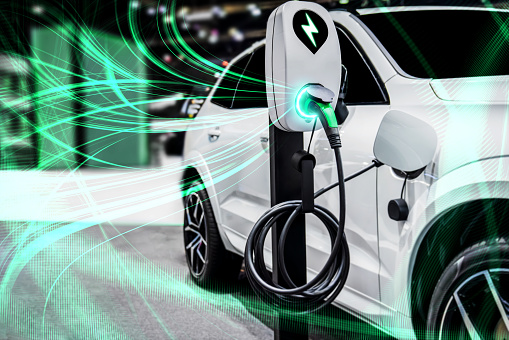Here's why 2022 will be important for India's EV industry
Importance of India’s EV industry.
1st September 2022

100 years later, Henry Ford and Thomas Edison’s dream of electrified transportation is now becoming reality. In addition to the fact that electric vehicles (EVs) are widely used today, the use of electricity as a fuel fortransportation is seeing unparalleled growth and innovation
India stands to gain significantly from the widespread use of e-mobility. The production of e-vehicles and the related parts is anticipated to enhance manufacturing’s contribution to India’s GDP to 25% by 2022 under the“Make in India” programme.
On the financial front, it is anticipated that widespread adoption of electric vehicles will reduce oil imports by $60 billion by 2030. Currently, 82 percent of India’s oil demand is met by imports. A driver of an electric
vehicle might save up to 20,000 for every 5,000 kilometres they travel if the cost of electricity as gasoline drops to as low as 1.1 cents per kilometre. Finally, electrification will assist in lowering automotive emissions, a significant cause of air pollution that results in an annual average GDP loss of 3%.
Depending on the size and type of battery pack, EVs have a finite amount of onboard energy that requires
periodic charging.
Therefore, EVs must have charging systems to operate sustainably at preferred stations. The charge
requirements vary depending on the utility use, such as passenger or commercial, as well as the type of vehicle (two-wheeler, three-wheeler, four-wheeler, and bus). This goal implies simultaneous station penetration throughout India with a strong emphasis on charging infrastructure.
Through FAME-1 and FAME-2, the government of India has a plan to support the EV industry. Additionally
upbeat and actively interested in the overall EV charging environment are the industry participants.
The ecosystem for the creation of chargers, charging stations, and other services is constantly being established while major OEMs work on EVs. Given its limited availability and lengthy charging periods, the infrastructure supporting electric mobility is also one of the major perceived obstacles to EV adoption in India. Therefore, enough research must be done to get beyond these obstacles and bring us on level with the USA and the EU in terms of global influence.
EV charging is simpler and is simple to charge at home or at gas stations. We should thus hope that we meet the aim set by 2030 and move on to a progressive, cleaner world powered by renewable energy sources. This fact may aid the EV infrastructure to strengthen the sector.
With a far more sustainable life cycle, electric vehicles (EVs) continue to be the cleanest mode of
transportation.On average, an EV produces half of a conventional vehicle’s carbon emissions over its lifetime, completely outperforming from a sustainability standpoint. Reusing and recycling batteries is also a growing market. Research into the use of second-hand batteries is looking at ways to reuse batteries in new technologies such as electricity storage. One day we could all have batteries in our homes being used to store our own energy. Opportunities like this will reduce the lifetime environmental impact of battery manufacture. Research by the European Energy Agency found that, even with electricity generation, the carbon emissions of an electric car are around 17 – 30% lower than driving a petrol or diesel car. The emissions from electricity generation are also dramatically improved when low carbon electricity is used.
RECOMMENDED

Jali, a traditional architectural element renowned for its beauty and functionality, has evolved...

Green audits are essential tools that provide a comprehensive assessment of an organization's environmental...

Daylighting is a strategic element in sustainable architecture, essential for reducing energy consumption and enhancing...